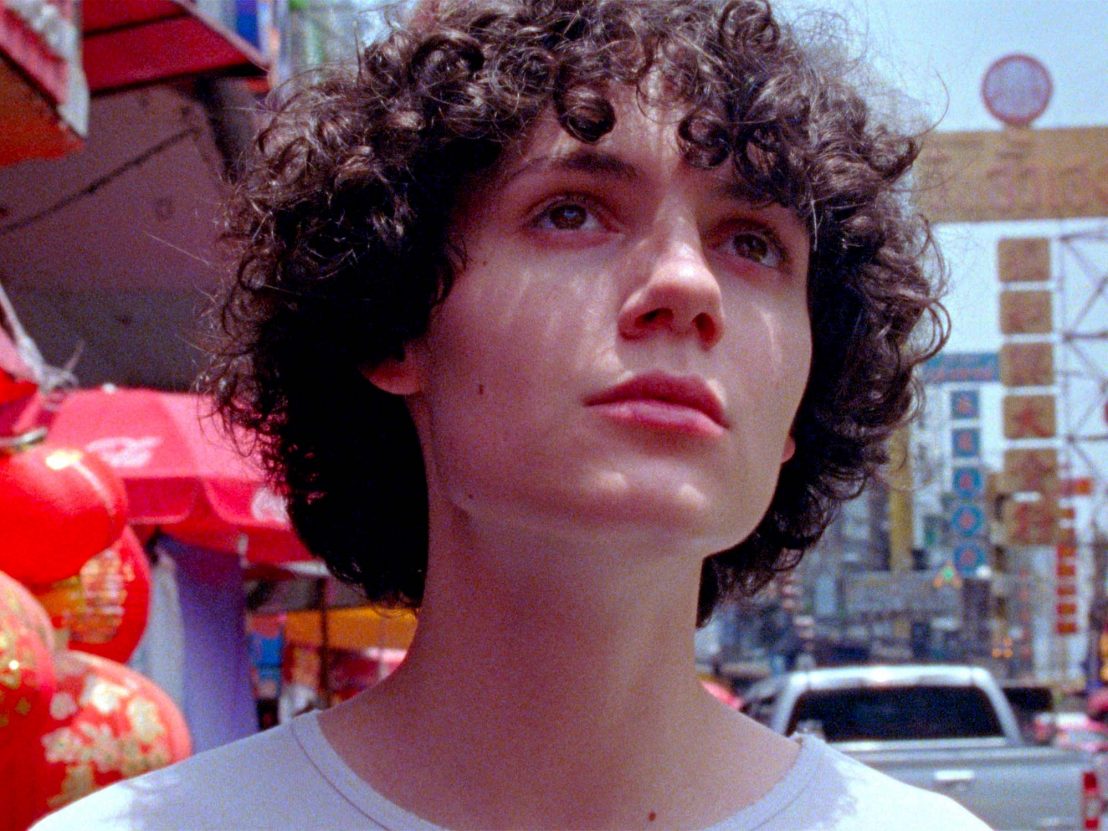
In Leonor Teles's enigmatic second feature, spatial experimentation becomes geographic gap-bridging material.
Excuse the cliché, but for most romantics, the notion of ‘home’ tends to be tied to a person – be it a lover, friend, family member – rather than a place. This statement rings particularly true for the curly-haired protagonist of Leonor Teles’s Baan. L (Carolina Miragaia) is a young architect living and working in Lisbon, whose recent breakup with an unnamed ex causes the world to shift beneath her feet. Drifting aimlessly from one off licence to the next to source cigarettes and alcohol, she finds random parties to attend on her own with the sole purpose of getting black out wasted.
Teles, whose short film Batrachian’s Ballad won the Golden Bear at the Berlinale in 2016, takes all but a straightforward path to plunge her viewers into the depths of her protagonist’s emotional experience. A chance, transformative encounter outside an ice cream shop brings K (Meghna Lall) into L’s life, a young woman of Thai heritage who was brought up in Canada and has been floating from one city to the next – Toronto, London, Lisbon – hoping that she finds herself in the city that will finally click into place and bring that much sought-after sigh of relief, a submission to belonging: “I’m home”.
Undercutting Teles’s electrifying visual language and stylish cinematography is a subtle political urgency mainly concerning the primary site in which the film takes place. By now, Lisbon has famously become one of the most prominent “digital nomad” hubs in Europe. Foreign entrepreneurs and workers (who are relatively well off) have taken advantage of the pandemic-spurred rise in remote working to seek out new experiences abroad, and for governments, this could only mean one thing: “Ker-ching”!
The Portuguese state was quick to decorate their capital city’s welcome mat with tax breaks, dedicated visas, the promise of relatively cheap cost of living, sunshine and a “bohemian lifestyle”. These workers enjoy salaries significantly higher than those of the local population, and have formed an economic muscle that has caused housing prices to soar.
Teles treads carefully yet deliberately in depicting this phenomenon, as overheard conversations amongst the Silicon Valley bros L’s bosses meet with are juxtaposed with the treatment faced by migrants from less economically privileged backgrounds, working jobs in hospitality. These larger forces and the effects of global (and racial) capitalism lurk in the background as L and K reach for the impossible grasp of belonging.
We don’t spend long with K, but her presence provides Teles the corporeal bridge to attempt a blurring of lines between Lisbon and Bangkok as urban signifiers from these two alchemically disparate cities begin to meld. Dynamic needledrops, highly kinetic sequences and still moments of repose coalesce as we begin to traverse the spatiotemporal boundary between past and present, the effect of geographical shifting evoking a Kaufman-esque dreaminess. Some clunky dialogue choices slightly spoil this effect, but Teles demonstrates great confidence in crafting an artful, aptly disorienting and deeply relatable journey through her protagonist’s emotions.
Little White Lies is committed to championing great movies and the talented people who make them.
Published 9 Aug 2023